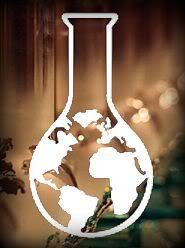When researching, I often find sources with obvious bias and slant, or else simply false information. It happens less and less as I've come to discern the difference between sites, but with the nature of the internet, I still get tripped up. After all, even the most reliable sites can be hacked, or more often, contain errors. However, I've found some pretty solid ways to ID sites that won't usually steer you off.
First off, check the top-level domain, or the .org, .edu, .com, etc. at the end of the site name. Usually, you can trust .edu and .gov sites- both are limited to educational and government sites, respectively. These cover five of my linked sites, so you can tell I really love finding them. Otherwise, .org sites can be misleading, as they're actually open to anyone. I've found many a good source at such sites, but they deserve a bit more care overall. Similarly, .com and .net sites, as well as pretty much everything else, can contain reliable info, but you need to look closer.
If it doesn't pass the domain name test, it's time to look for a source within the site. To start off, many .org sites obviously show you who they are. acs.org, for example, is the American Chemical Society, and rsc.org is the Royal Society of Chemistry, two rather strong sources. I also find off-shoots of their sites; the Green Chemistry Network at chemsoc.org is also from the RSC. I also list .net, .com, and a .ca (for Canada, of course) on my links, and all similarly display their credentials. For example, I found that Tel Aviv University has a nice blog with some chem news, and that the University of York has gone as far as making their site greenchemistry.net. And the Canadian one? Why, that's the Canadian chapter of ACS's Green Chemistry Institute, of course!
Overall, I generally feel safe with university sites and national organizations when it comes to science research. Still, especially with a topic so prevalent and recently popular, I have to watch out for some bias everywhere. I tend to stay away from opinion pieces and stick to the more factual information.
Oh, and Wikipedia? Yes, I use it, especially for the quick fact here and there. But more often, it's great to link me to better resources. I think my favorite thing is the little External Links section at the end! After all, while it may be easily edited by the internet at large, those links are usually quite a lot harder to get at.
Subscribe to:
Post Comments (Atom)

3 comments:
Julia,
Checking the end of a site name is a good idea! I did not know that .org sites could be less accurate than .net sites and others.
Isn't it great how universities publish their research! Did you hear about how researchers at U Chicago just discovered... :)
And Wikipedia is of course amazing! The links at the bottom are great for further research, and as you stated, Wikipedia is good for providing “quick facts!”
~Rick
Julia, you have the best internet advice, I have to say. Thank you for being so knowledgeable!
You definitely have the most effective internet advice -- i agree with Sandra!! You mentioned everything i could ever imagine about the reliability of websites. VERY good!! I don't have any more comments...
Post a Comment